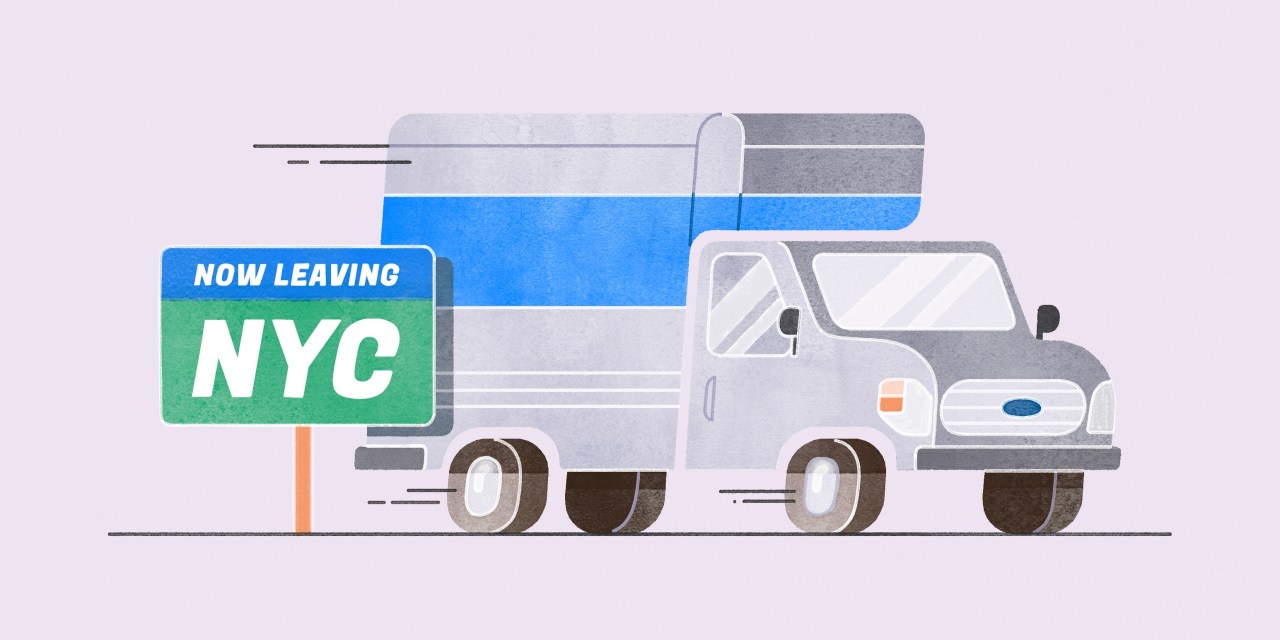Relocation dilemma: should you move for a job?

While remote and hybrid work has allowed employees to live further and further away from the office, return-to-office mandates have changed the conversation yet again.
These RTO demands, plus the gradual reduction of fully remote jobs available over the past year, have left people questioning whether they should move for work. And for those who have relocated hundreds of miles from their office headquarters — as many did over the last few years — that’s a particularly major decision.
And more people live further from their jobs than ever before. The mean distance to work rose from 10 miles in 2019 to 27 miles at the end of 2023, according to a recent report from Gusto and Stanford’s Work from Home Group, The share of workers living more than 50 miles from their employer rose more than five-fold, from 0.8% to 5.5%.
This expanding distance between work and home has been driven primarily by white-collar workers who earn more than $100,000 and work in jobs like tech, finance, law, marketing and accounting. Workers earning more than $250,000 per year live on average 42 miles from work, compared to those making less than $50,000 who live within 18 miles of work.
That means that many people still don’t have the choice to be too far from their employer. In fact, they might need to uproot their life entirely to progress in their careers.
“Human beings have to go back to the core of like ‘why am I looking for a job in the first place?’,” said Paaras Parker, chief human resources officer at human capital management software Paycor. “What are the things most important to me both professionally and personally, and then lining up those decisions to ‘does it make sense for me to uproot my family or leave the place that I’m used to and comfortable living in?’”
Career advancement opportunities
LinkedIn’s latest Workforce Confidence Index found career advancement — either a person’s own or their partner’s — was a factor for some workers who said they have moved over an hour away from family and friends. Of those who have moved away from family or friends, 35% said they moved to advance their own career, and 16% said they moved for their partner’s career.
“What are the benefits of doing this for my career in the long term?,” said Drew McCaskill, a LinkedIn career expert. “You need to think about it beyond this particular job. Can you grow and will it advance your career in the long term?”
Katie Birkelo, svp, western U.S., at staffing agency Randstad, agrees, adding that it’s even more crucial for candidates to understand the career growth plan if they move for that company.
“Even look to see are there similar companies in the same geography that if you don’t love it, you can move to another one?” said Birkelo. “That’s really important to see what are the additional opportunities.”
She has found that those who are relocatable do advance quicker – ”that’s the reality of the business world” – because it shows that they are willing to move for a career and are ambitious.
“In the times I moved for jobs, it was for the opportunity,” said McCaskill, who relocated twice for two different jobs. “I could see how the job opened me up to have a bigger career path and to obtain more skills and was unique to make me stand out later.”
Family obligations and proximity to support systems
But, for a lot of people, it’s not that simple, especially if you are a caregiver or are starting a family. According to LinkedIn’s report, 44% of Americans said they do not currently live within one hour of their closest family members.
But, people aren’t always happy with that. Gusto and Stanford’s research found that employees aged 30 to 39 years old live the farthest away from their employer, and the distance has risen the most amongst this group over the years. The distance to work has risen 2.9x among 35 to 39-year-olds (from 10 to 29 miles) and 2.8x among 30 to 34-year-olds (from 11 to 31 miles), a sign that this group is taking advantage of the flexibility that remote and hybrid work provides as they reach parenting age.
“People need financial security and to be closer to their family to help with quality of life,” said McCaskill. “I think those things are really important and you can see the rationale as to why. It also comes into play when you have a tough day at work and you want to have that community.”
And Birkelo says most companies are no longer offering relocation fees or generous packages to entice someone to leave their life behind, creating a flat relocation market.
“Where people are considering a role outside of their current geography and it’s not attached to a relocation package, they’re making a decision to relocate on their own,” said Birkelo.
When you’re not working there, you’re living there
“People are going to be faced with not just what they want to do, but where they want to live,” said Parker. And that requires a lot more thought than accepting a job offer that doesn’t require you to move.
Birkelo agrees, and even suggests asking employers to fly you out as part of the interview process. That’s what McCaskill did for one of his interviews when he was recruited to the Bay Area years ago.
“The company flew me out, we went around the city for a couple of days, and they really wanted me to see how people are thriving in this city and at the company,” said McCaskill. Ultimately, he didn’t take the position because he didn’t feel enough of an aligned culture fit.
Birkelo said while employers aren’t offering huge relocation packages anymore, they are still flying people out. As much as the candidate is worried about a cultural fit, so is the employer. They don’t want to hire someone who ends up hating living there and then needs to replace them just a few short months later – a huge task that ends up with the company losing money.
McCaskill suggests asking yourself questions like: is the city safe for you and will you be able to thrive both personally and professionally? “You spend a whole lot of time outside of the office,” said McCaskill. “If you are thinking about moving to a new city, do your research and go deep into your networks. Who do you know in this city?”


